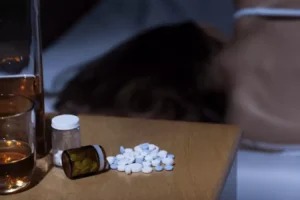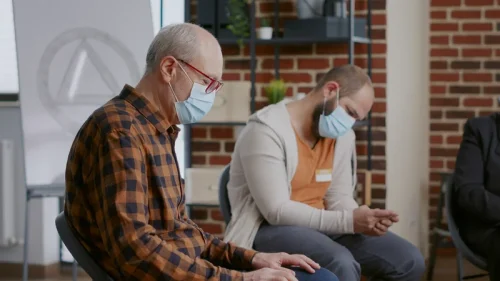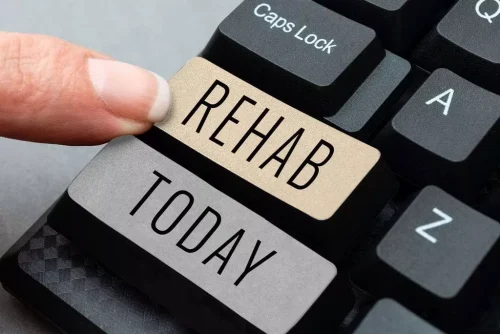
It probably involved hitting several low points and tough times along the way, and those pitfalls still occur after recovery begins. Sometimes the effort involved in recovery can make the struggles gratitude recovery of a tough time feel even worse. Gratitude can help keep your focus on the progress, not the setback. Try to think of similar questions that may put a positive spin on negative experiences.
How can I incorporate gratitude into my daily life in sobriety?
Commissioner González-Sánchez has more than 30 years of experience in the fields of behavioral health services administration, health policy development, and medical research. Commissioner González-Sánchez serves on the Governor’s Medicaid Redesign Team (MRT) Behavioral Health Subcommittee. She is co-chair of the State’s Behavioral Health Services Advisory Council, and a co-chair of the Responsible Play Partnership which addresses problem gambling in New York State. Governor Cuomo also appointed Commissioner Arlene Gonzalez-Sanchez to serve as Member of the Council for SUNY Empire State College for a term, which expires in June 2024. Setting aside just five minutes each day to think about the things you’re thankful for is an excellent way to maintain a positive mindset, combat feelings of depression and anxiety, and have more gratitude in recovery. Even if you’re struggling through an exceptionally difficult life circumstance, there is always something to be thankful for.
Learning Center
That’s why gratitude is so important for people recovering from addiction, especially in early recovery. You see the kindness and generosity of others who support you, inspire you, and make a difference in your life. You also recognize the opportunities and possibilities that lie ahead of you and embrace them with enthusiasm and a positive outlook. So much of recovery is helping others who are going through the same struggle. If you acknowledge the past and appreciate the journey in a positive, intentional way, you might teach others to do the same.
Regular Gratitude Practice Promotes Recovery
With gratitude on your side, you can be a positive force in the world. Every day, take just a moment or two to write down a few things that make you grateful. It could be spending an afternoon with a friend or watching the sunrise. Then, if you’re having an especially difficult day, read over some of the things that have filled you with gratitude.
- Say positive affirmations to yourself in the mirror, or write them down on sticky notes and place them around your home.
- Her areas of expertise include stakeholder engagement, physician quality measurement and value-based payment transformation.
- It can help you shift your focus from what you lack or regret to what you have and cherish.
- Gratitude isn’t dependent on having an abundance of things to be thankful for; it’s about recognizing and appreciating the small and ordinary aspects of our lives.
- Since its inception, Shawn and Moodie Bluez have helped hundreds of people not only maximize their credit scores, but also achieve their financial goals, including home ownership.
Careers – Join Our Team
One of the best ways to feel grateful is to give back and help others. Whether volunteering, donating to a worthy cause, or simply lending a listening ear, giving back is a great way to practice gratitude in recovery. When we take the focus off of ourselves and our problems, we can see all of the ways we are fortunate and have so much to offer. If you’re not able to practice gratitude in social settings or in your communication with people, practice gratitude introspectively by journaling or creating a gratitude list.
Millions of people face the same challenge every day, but there is hope. You can start your recovery journey with Design for Recovery, a sober living home for men that offers a supportive environment and a holistic approach to recovery. You can find positive role models in your recovery community, such as support groups, online forums, or recovery coaches.


Mindfulness is a practice that is increasingly used in holistic addiction treatment, but also something that can help you to be grateful separately from recovering from an addiction. Mindfulness is the simple practice of living in the present, paying attention to the present moment, and letting thoughts go rather than focusing on them. This follows the principle that most people spend about 47% of their time worrying, resulting in anxiety, depression, and less enjoyment of what they are actually doing. Gratitude is one of the core principles of Alcoholics Anonymous (AA) and other 12-step programs.
Individualized, evidence based treatment, to fit your needs.
One way is to begin journaling about the things in your life that you are grateful for right now. While we can look at each one of these things and find an issue, the power is in finding the good in each. Addiction strips away all the good things in life; health, happiness, contentment … you name it. Taking a moment to think about something good you have now can serve as a reminder of how far you’ve come since your addiction. Remembering the way your life was when you were addicted doesn’t have to drudge up feelings of regret or sadness. Instead, it can improve your gratitude and remind you that the fight to stay sober is worth the effort.

